Still Alice Blu-ray Movie
HomeStill Alice Blu-ray Movie 
Blu-ray + UV Digital CopySony Pictures | 2014 | 101 min | Rated PG-13 | May 12, 2015
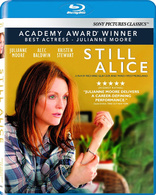
Movie rating
7.5 | / 10 |
Blu-ray rating
| Users | 0.0 | |
| Reviewer | 4.0 | |
| Overall | 4.0 |
Overview
Still Alice (2014)
Alice Howland, happily married with three grown children, is a renowned linguistics professor who starts to forget words. When she receives a devastating diagnosis, Alice and her family find their bonds tested.
Starring: Julianne Moore, Alec Baldwin, Kristen Stewart, Kate Bosworth, Victoria CartagenaDirector: Richard Glatzer, Wash Westmoreland
| Drama | 100% |
Specifications
Video
Video codec: MPEG-4 AVC
Video resolution: 1080p
Aspect ratio: 1.85:1
Original aspect ratio: 1.85:1
Audio
English: DTS-HD Master Audio 5.1 (48kHz, 24-bit)
French: DTS-HD Master Audio 5.1 (48kHz, 16-bit)
Subtitles
English, English SDH, French
Discs
50GB Blu-ray Disc
Single disc (1 BD)
UV digital copy
Packaging
Slipcover in original pressing
Playback
Region A (locked)
Review
Rating summary
| Movie | 5.0 | |
| Video | 4.0 | |
| Audio | 4.0 | |
| Extras | 2.0 | |
| Overall | 4.0 |
Still Alice Blu-ray Movie Review
Emotional, difficult, frightening, rewarding.
Reviewed by Martin Liebman April 25, 2015The great journey of life is guided by memories, the path forward paved by a learned and, to a somewhat lesser extent, instinctual intuition of where to go next, when, and how, based on past experiences that knowingly influence the next foot forward. Sometimes one might throw caution to the wind and take what life may give, but as a general rule mankind's way forward has been through the past, using his own life lessons, and the experiences of those around him, to take the best possible path towards a still unknown, but hopeful, future. The past is man's compass, a pointer that may not guide straight or perfect but that does present a good general idea of what lies ahead. Move that away, however, and man becomes lost. Take it away, and man becomes practically blind, walking forward into a darkness with no idea of what lies ahead but also no idea of what lies back, how the journey has been shaped, and how that shape will influence the way forward. Still Alice tells the heartbreaking story of one such person whose light grows ever more dim, whose compass slowly melts into nothing, whose very essence becomes a murky, darkening mass of jumbled ideas, visions, and expectations formed without the benefit of remembered experiences, quickly traveling to a point of no return where the way forward is as dark was the look back, where every foot forward is a leap of faith rather than an assured step in the right direction.
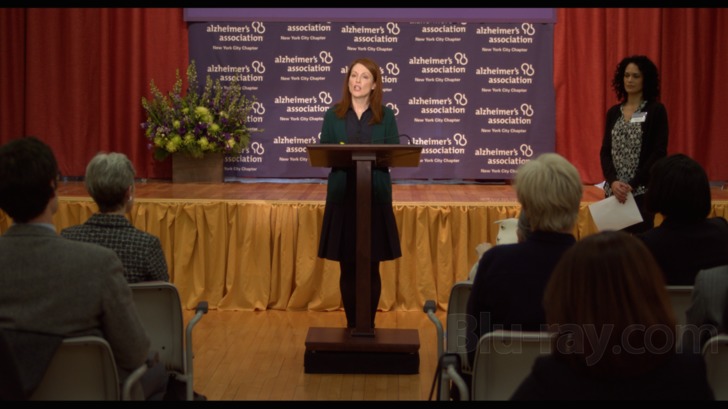
Doing what she can.
Alice Howland (Julianne Moore) is a successful professor in linguistics and Columbia University. Her dissertation has become a cornerstone of linguistics education. She's smart, motivated, married, and is mother to three grown children. And she's slowly losing her mind. A few innocent bouts of forgetfulness -- a word she can't get off the tip of her tongue, having to look up the recipe for her daughter's favorite desert -- slowly increase to more obvious and dangerous events. She's diagnosed with early onset familial Alzheimer's disease, which means her children (Kate Bosworth, Hunter Parrish, Kristen Stewart) are potential victims as well. Her workaholic husband (Alec Baldwin) is supportive. But as the condition worsens, Alice's ability to function, to remember basic things about her life, her family, and herself, begin to fade, leaving her vulnerable and unable to fully function without massive amounts of help from others and with no idea of how to identify or deal with herself or the world around her.
One of the great questions, and one at which the film's title hints, is whether Alice is still Alice as her condition deteriorates to the point that she's unable to recognize her own family, alive but without the considered guidance of her past experiences, incapable of relying on herself for answers. That's what makes the story -- and the disease -- so tragic, that loss of self that's far more debilitating than physical injuries which may or may not heal but that still leave a person's essence intact. Just how much does a sense of self and an identity shaped by an understandable compilation of past experiences mean to one's existence? Certainly, Alice looks the same throughout the movie -- more haggard to be sure by the end but still identifiable as herself in physical form, retaining her creamy skin, red hair, basic vocal patterns, and other identifying qualities -- but does that slow departure of her core memories distance her from her soul? How deeply transformative is her condition? Is a sense of self one-sided, or does she remain if only in the eyes and minds of her friends and family? Is being able to self-identify and share a bond what makes a person, or does that broken bond break her from those with whom she shared it? One day, hopefully, the questions will be moot and man will have conquered this disease, but Still Alice offers a deeply contemplative story of life with Alzheimer's and is in many ways a truly frightening movie but at the same time a hopeful movie as it journeys through the murky questions and strives to get down an answer in a single word: "love."
The movie's delicate balance between heartbreakingly difficult -- if not impossible -- to watch and its efforts at showing the other side of the coin, the sense of family, support, and love, is the only way to rightly make a movie of this sort. The film's path through Alice's downfall is built with a terrifying precision that begins with almost throwaway bits of forgetfulness, like forgetting a word, (something relatable to everyone in the audience), and growing exponentially more serious, and tragic, as the condition rapidly worsens to the point that the audience gets around to that question as to whether Alice is still Alice, if it's her intact physical form that makes her who she is, if it's her disappearing cognition, or if there's something deeper still that remains even when all else is gone. Frankly, the movie is, largely, a terrifying experience. The audience will not only join Alice and her family through their saga of personal deterioration but at the same time the audience will, even if it's only on a subconscious level, play through their own fears and mentally maneuver through all of the permutations and their consequences, often in parallel with Alice. It's an emotionally draining movie but at the same time one of the most rewarding for its expert craftsmanship and Julianne Moore's stunning, career-defining performance.
Julianne Moore is frighteningly authentic in the movie, playing Alice with a tangible sense of loss, fear, confusion, and rapid mental degradation. The performance works on both the surface level and within its many nuanced moments alike, where the character shows overt signs of loss and struggles with them, but it's also in her everyday approach to the part, the small things, that help define the character. She's certainly the beneficiary of a smart, tight, knowing script that's obviously written with a deep understanding of the illness, but Moore's ability to so perfectly, purposefully, and even frighteningly share not only the outward signs but the internal struggle and degradation makes the performance an unmistakable masterpiece of the acting craft. She's supported by a very strong Alec Baldwin in one of his best efforts in recent years, he also showing tremendous range as his outward support, inward fears, and ever-increasing doubts and uncertainties build with every new development.
Still Alice Blu-ray Movie, Video Quality 
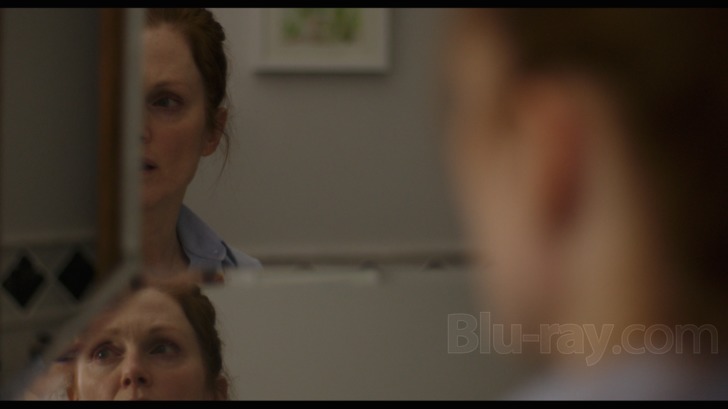
Still Alice features a solid, if not slightly unspectacular, 1080p transfer. Despite some minor issues of softness, a sense of flatness, and a few instances of lightly crushed blacks -- dark suits melt into dark chairs at a dinner at film's start -- the image generally impresses. Details are fine, not exemplary but more than capable of bringing out facial and clothing nuance, environmental details, and basics little touches like scuffed hardwood flooring textures with relative ease. Colors are balanced and lively, notably on clothes, and there's never a sense of excess vibrancy or unnatural dullness. Noise does dance across some of the lower light backgrounds; watch the early sequence in which Alice gives a presentation where she forgets the word "lexicon." Otherwise, the image is free of any unwanted eyesores like banding or blocking. It's not a stunner, but this is a capable, sturdy transfer from Sony.
Still Alice Blu-ray Movie, Audio Quality 
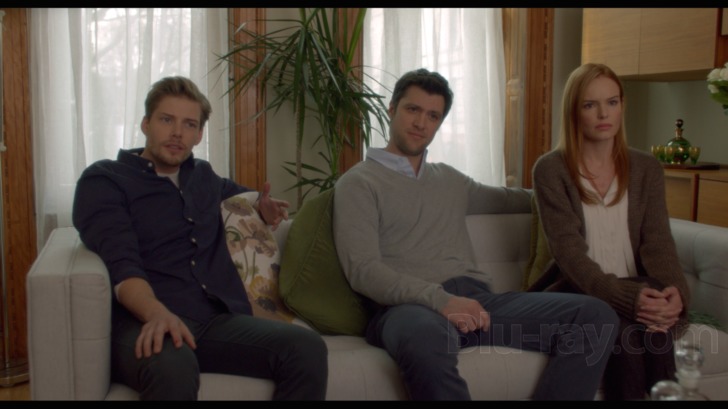
Still Alice features a DTS-HD Master Audio 5.1 lossless soundtrack that's of relatively simple construction. It's largely a dialogue dependent film, and the spoken word plays evenly, accurately, and naturally from the front-center speaker. The track incorporates a fair bit of ambience when necessary, such as background din at a restaurant or rolling waves beachside. Music is well defined and precise, particularly in some more deliberately confused bits that swirl through the back.
Still Alice Blu-ray Movie, Special Features and Extras 
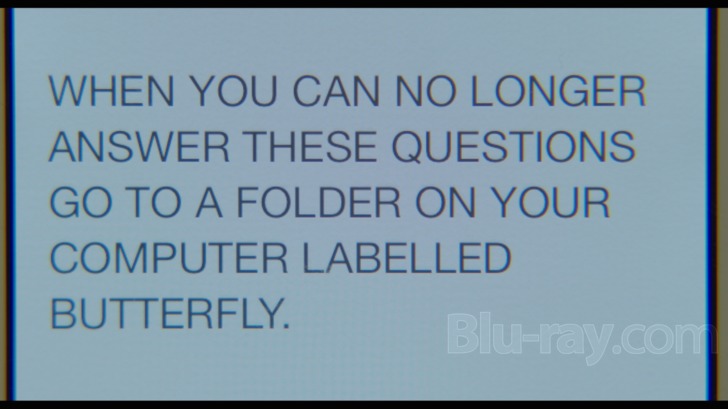
Still Alice contains several featurettes and deleted scenes. Inside the Blu-ray case, buyers will find a voucher for a UV digital copy of the film.
- Directing Alice (1080p, 8:40): A look at Directors Wash Westmoreland and the late Richard Glatzer and their work on the filmmaking process, particularly the challenge of working through Glatzer's amyotrophic lateral sclerosis.
- Finding Alice (1080p, 9:20): An overview of Alzheimer's disease and Moore's preparations for the part with real-life Alzheimer's patient Sandy Oltz.
- Interview with Composer Ilan Eshkeri (1080i, 6:29): The film's composer discusses how his score helps define the movie.
- Deleted Scenes (1080p): Original Intro (1:58), Doctor Visit (2:10), and Student Presentation (2:12).
- Still Alice Theatrical Trailer (1080p, 2:18).
- Previews (1080p): Additional Sony titles.
Still Alice Blu-ray Movie, Overall Score and Recommendation 
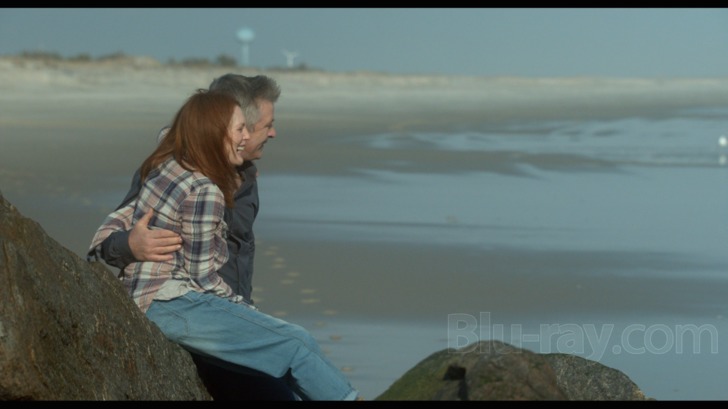
Still Alice will be, for many audiences, a most difficult and challenging movie. Moore's performance and the script's precision are frighteningly authentic in feel and, in many ways, the movie is scarier than most Horror films for its ability to really put into question the essence of man in the face of mental degradation. But it's also hopeful in the way the spirit remains and the love of others never leaves, even in life's most challenging circumstances. In that way, it's one of the most rewarding movies available to watch. On either side of the coin, it's a must-see and one of the finest films of 2014. Sony's Blu-ray release of Still Alice features solid video and audio. Supplements are limited to a few featurettes and deleted scenes. Highly recommended, even if the supplements could have been much more satisfying in terms of number and content.
Similar titles
Similar titles you might also like

The Celluloid Closet 4K
1996

First Reformed
2017

Birdman
Birdman or (The Unexpected Virtue of Ignorance)
2014

The Humbling
2014

Orlando
1992

The Other Woman
Love and Other Impossible Pursuits
2009

Frances Ha
2012

Blue Jasmine
2013

Michael Clayton
2007

Margaret
Theatrical and Extended Cut on DVD
2011

Her Smell
2018

Tiny Furniture
2010

Rebel in the Rye
2017

Solitary Man
2009

Factory Girl
2006

The Fisher King 4K
1991

SLC Punk! 4K
1998

Marriage Story
2019

If Beale Street Could Talk
2018

Sophie's Choice
Collector's Edition
1982
